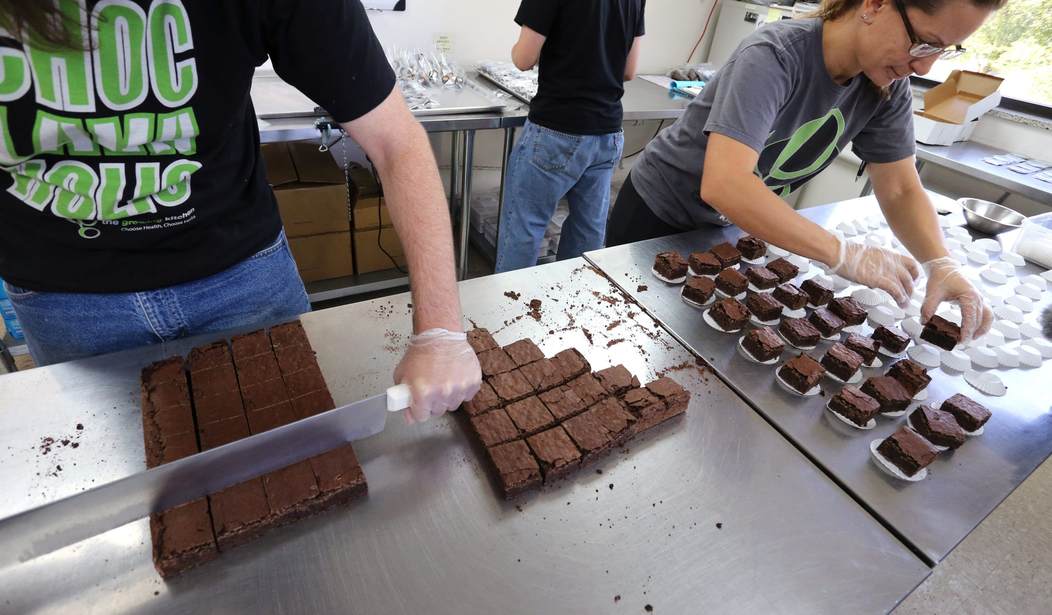Colorado Gov. John Hickenlooper (D), a former bar owner who never liked the idea of legalizing marijuana, has some advice for his colleagues in other states that have joined the nation’s recreational reefer madness: worry about your children.
Colorado voters made their state the first in the nation to approve the idea of smoking weed, legally, just for the fun of it, in 2012. Less than two years later, the expression “Rocky Mountain High” had a new meaning when recreational pot went legal in January 2014.
California, Massachusetts, Maine and Nevada joined the legalized pot lineup in November. Now there’s speculation that it won’t be long before the federal prohibition against marijuana is lifted.
The experience of living in Colorado may have been enhanced by the buzz, but it has not been problem-free.
Hickenlooper told the Los Angeles Times during the Western Governors’ Association meeting in December that Colorado had seen an increase in kids being admitted to hospital emergency rooms after eating candy they didn’t know was spiked with marijuana.
Marijuana Business Daily reported edible marijuana — sometimes baked into brownies and added to candy or even beef jerky — is a huge business in Colorado. In the first quarter of 2016, it accounted for about a third of the state’s $5.4 million marijuana business.
A Children’s Hospital Colorado paper on the effects of marijuana on children stated that when a kid overdoses on pot, it most often happened because the children — under the age of 12 — ate too much candy laced with weed.
“In these instances, kids mistake ‘edible’ marijuana (like gummy bears, brownies, lollipops, etc.) for regular food and eat it unknowingly. Small children are at higher risk based on their size and weight. Because edible products have very high amounts of marijuana, the symptoms are more severe on a small child,” according to the Children’s Hospital Colorado report.
The report also said many young children who consume marijuana edibles react so severely that they have to be hospitalized.
Hickenlooper said that should serve as a lesson learned from which other states could benefit.
“We didn’t regulate edibles strongly enough at first,” Hickenlooper said.
The problem was that candy by any other name just looks like candy when it comes out of the package.
Enter Rep. Dan Pabon, a Democrat from Denver. He introduced legislation, which was approved, to prohibit marijuana candy or anything else edible from being shaped like something a kid would want — animals, humans or fruit.
“I have a 3-year-old son who likes gummy bears,” said Rep. Pabon.
But Dr. Christine Miller, a neuroscientist, says the legislation was too little, too late.
Miller also told Lifezette that keeping marijuana candy out of the hands of children ignores the real problem posed by edible pot — it’s extremely dangerous, too dangerous even for adults.
As Miller explained it, there’s no way to tell what effect edible marijuana will have on the person consuming it because THC, the ingredient that gives pot its buzz, goes through the liver first when it’s eaten.
She said the liver generates its own suite of products that are highly specific to everything from the person’s genetics to what the person has eaten earlier in the day.
“(Gov. Hickenlooper) should recommend that they ban edibles based on their public health risk, rather than waiting for the FDA to act,” added Miller.
Smart Colorado, a group formed after pot was legalized in Colorado, has its own advice for the states that are new to the roster of the toke ‘em if you got ‘em lifestyle zones: stand up for kids.
Diane Carlson, a co-founder of the group, said in the state’s rush to legalize marijuana there was no one but Smart Colorado worried about what would happen to the state’s children.
“Unfortunately for Colorado’s kids, we learned lessons the hard way – by trial and error,” Carlson said in an October statement. “In the process, Colorado has endangered a generation of children. While we may not be able to undo the damage marijuana commercialization has done to young Coloradans, other states can benefit from our experiences and protect kids.”
Slow down, you’re moving too fast, say Colorado’s pot entrepreneurs, who have their own message for states that are new to legal marijuana — don’t suffocate your marijuana entrepreneurs.
“The industry is being crushed by continuous regulations,” Jaime Lewis, the owner of Mountain Medicine and board member of the National Cannabis Industry Association, complained to High Times.
“We keep getting smacked in the face with additional regulations, before we actually see if the regulations that have already been put into place are going to work,” she added.
Sweet Stone Candy founder Claude Card told High Times it would be better to educate the public than regulate the industry.
“The more they try to regulate small things like shape, potency and plant count, the less freedom we have with a plant that should never have been illegal to begin with. An underground market is better than an over-regulated one,” Card said.
Veterinarians in Colorado could give some advice to states that will welcome 2017 with legal marijuana too: worry about the dogs.
Veterinarians point to the stories of dogs like Lenni, who started acting strangely after her owner took her out for some trail running on Tenderfoot Mountain.
The golden retriever was sluggish, gazing into space, and barely moving at home. Then she peed on the carpet, something Lenni never does.
Lenni was high.
Her owner, Heidi Sodetz, doesn’t use pot, so she figured Lenni must have gobbled up some marijuana candy or maybe some pot-laced beef jerky that spilled out of someone’s pocket on the trails.
Dr. Michelle Gross told Summit Daily she’s seeing one or two dogs a month coming into her office buzzed from the effects of THC.
“I’ve had owners say, ‘Oh, now it makes sense,’” Gross said, “because they had (marijuana) candies go missing.”









Join the conversation as a VIP Member